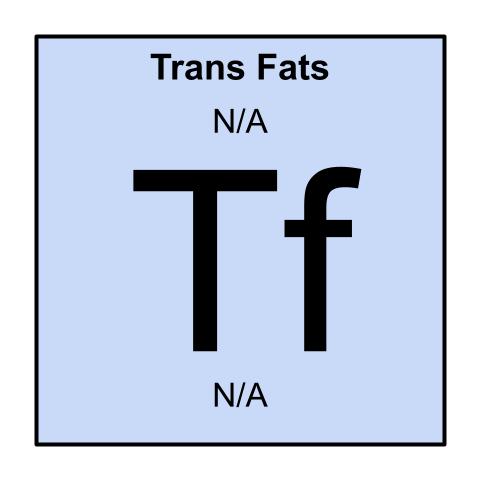Trans fat is a form of unsaturated fat that is found both in a natural form in foods, and a synthetic form. No harmful effects are found from consumption of natural trans fats, whereas chemically made trans fats found in processed foods and were banned by the FDA in 2015 due to increased risk of heart disease.
Natural form
-No harmful effects have been shown from the natural form of trans fat [211][212][213]
-Found in ruminant animals like cows, sheet, and goats
-2-6% of dairy is usually naturally trans fats, and one of the most well known
-3-9% of the fat in beef and lamb is naturally trans fats
-The most well known one is conjugated linoleic acid, which is commonly accepted to be healthy and is marketed as a supplement [218][219][220][221]
Synthetic form
-Also known as industrial trans fats, or partially hydrogenated fats. They are made when unsaturated fats are chemically modified so that they stay solid at room temperature and have a longer shelf life and taste better
-Many studies have found a correlation between trans fat intake and heart disease [214][215][216][217]
-Banned by the FDA in 2015, allowing companies until January 2020 to phase trans fats out of products [149]
RDI
The less artificial sources the better
Deficiency
None
Toxicity
The synthetic form is correlated with heart disease
Sources
Trans fats have been legally reduced and phased out over time, but the following may contain some: Deep fried foods, pie crust, margarine, shortening, frosting, non-dairy creamer

